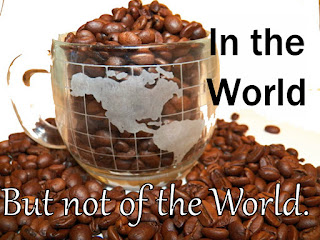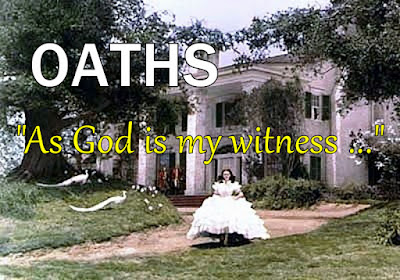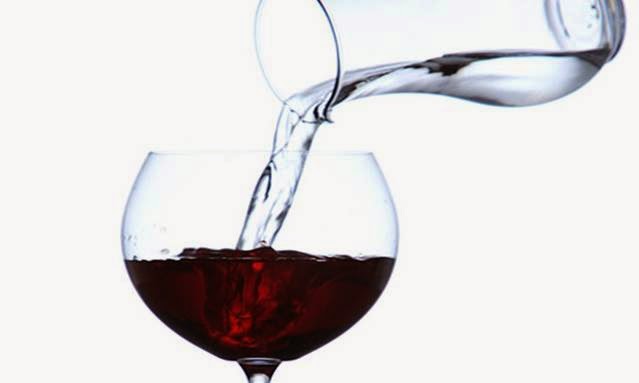DIXIE CUPS, HYSSOP BRANCHES AND ROCK GUT WINE

After this, when Jesus knew that all was now finished, he said (in order to fulfill the scripture), “I am thirsty.” A jar full of sour wine was standing there. So they put a sponge full of the wine on a branch of hyssop and held it to his mouth. When Jesus had received the wine, he said, “It is finished.” Then he bowed his head and gave up his spirit.
John 19:28-30
Have you noticed that very few people collect Dixie cups? You won't find them in antique shops or displayed with pride along side great-grandmother's cut crystal ware. They are disposable objects that once used, have no significance for us. Yet, when they become part of a child's night time routine along with bed-time stories and being tucked in, that last drink of water served in a Dixie cup before the lights go out becomes a gesture of parental love and care, and that's when a paper cup becomes an object of value. Sometimes, it's the little things, the ordinary things that count.
In
today’s scripture, when Christ announces, “I thirst!”,
a sponge is dipped into sour wine, put on hyssop and put to his mouth.
What
new insights might we find in this story of Christ’s death through
hyssop and cheap, rock-gut wine?
We’ll
begin with hyssop.
In
the Bible, many plants are mentioned. The cedars of Lebanon, for
example. Logs of this tall, majestic tree were used in the
construction of the Temple in Jerusalem and other important buildings
throughout the middle east.
Hyssop,
on the other hand is, literally, a lowly plant. Having a woody stem,
it grows to the height of two feet. Like an invasive weed it grows
everywhere, taking root between the stones of buildings.
Yet,
God set this herb aside for holy purposes.
In
the story of the Passover, from Exodus 17 in the Old Testament, God
instructs the Hebrew slaves to kill a lamb and, using hyssop, put the
blood of the animal on the door sills of their homes so the angel of
death would passover their homes and their first born children and
live stock would be safe. The Egyptians were not as fortunate. This
final plague finally convinced the King of Egypt to release the
people of Israel from slavery.
I
believe that the presence of hyssop in the hour of Christ’s death
can remind us that just as God delivered the Hebrew people from
slavery, Christ’s death and sacrifice delivers us from slavery to
sin and death.
The
sour wine Jesus was given was what was drunk by the Roman soldiers.
It was cheap (the wine in a box of its time), quenched one’s
thirst., and if overindulged in would leave one with a hangover and a
death wish the next morning.
Biblical
scholars are quick to point out that this fulfills the prophesy from
Psalm 69:21: “...and for my thirst, they gave me some wine to
drink” (Psalm 69:21), so it serves a divine purpose.
But
wait, the sour wine was the second offering of wine.
In
Mark 15:23, when Jesus first arrived at Golgotha, he was offered wine
mixed with myrrh, a narcotic which would deaden the pain of his
execution. He refused it and, instead, choose to fully endure the
pain and suffering appointed to him.
Why?
Because to Christ, we are worth it.
We
can understand someone dying for a person worth dying for, and we can
understand how someone good and noble could inspire us to selfless
sacrifice. But God put his love on the line for us by offering his
Son in sacrificial death in an unconditional act of his love for us,
whether we deserve it or not.
It
is that love that gives us worth, that gives us significance.
No
matter what our gifts, talents and abilities are, we are an important
part in God’s plan for the redemption of all creation. We matter,
and we are a holy people, set apart to share God’s love with all
people and make disciples for Jesus Christ for the transformation of
the world. We are called to sing out the gospel – to send, invite,
nurture, grow and serve.
Because
God loves us, we have sacred worth. Because of Christ’s death and
resurrection we are freed people with the sacred task of making a
difference in people’s lives.



Comments
Post a Comment